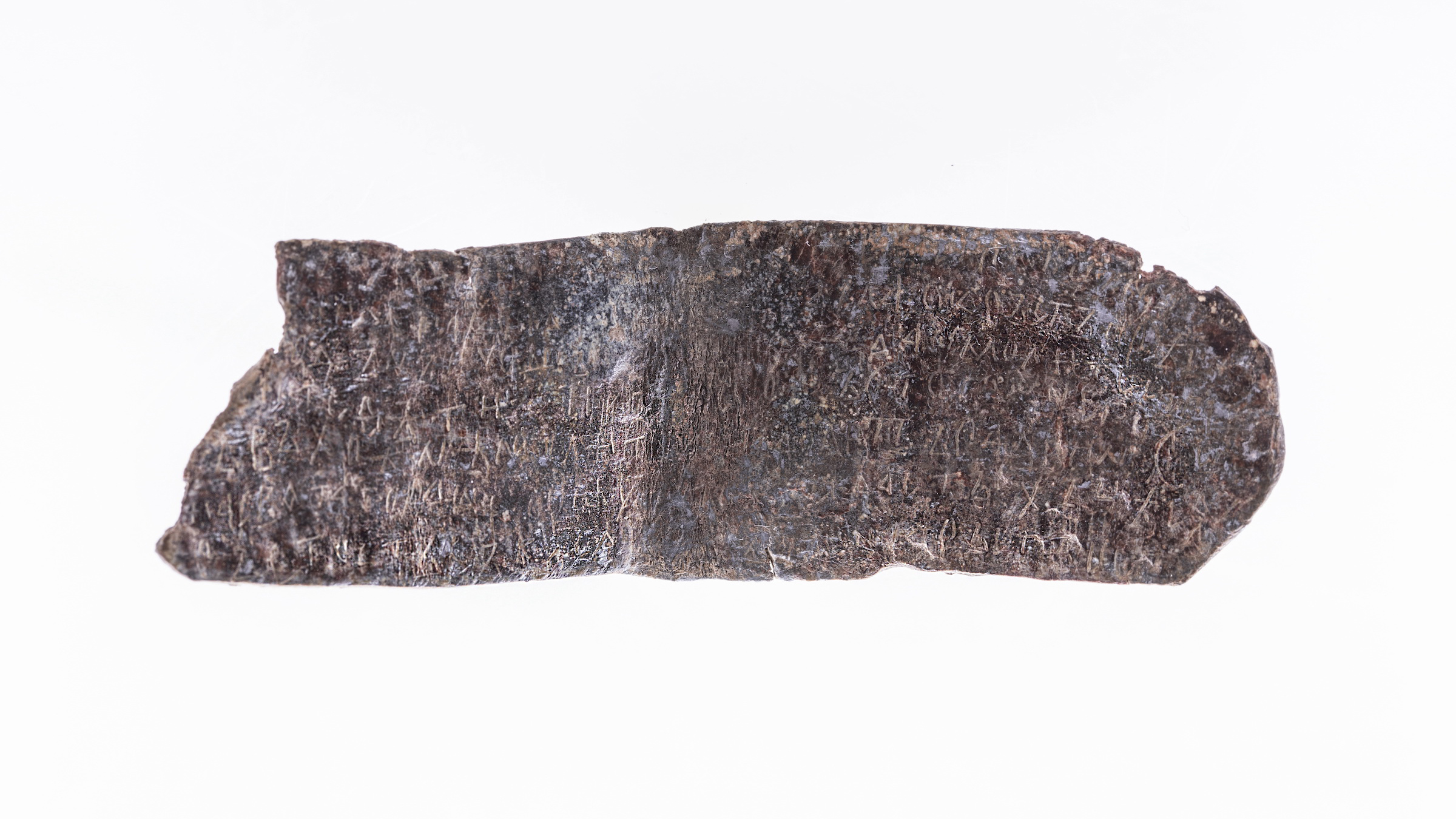
A 1,100 year-old inscription found on a breastplate unearthed in the ruins of a Bulgarian fortress may be one of the oldest Cyrillic texts ever found.
"The text was written on a lead plate worn on the chest to protect the wearer from trouble and evil," said Ivailo Kanev, an archaeologist with Bulgaria's National Museum who leads the team excavating the fortress, which is on the border between Greece and Bulgaria.
The inscription refers to two supplicants named Pavel and Dimitar, Kanev said.
"It is not known who the supplicants Pavel and Dimitar were, but most likely Dimitar participated in the garrison, settled in the fortress, and was a relative of Pavel," Kanev said.
The inscription dates to the time of Tsar Simeon I (also known as Simeon the Great) who ruled the Bulgarian Empire between 893 and 927, said Kanev. During this time the tsar expanded the empire, launching military campaigns against the Byzantine Empire.
Related: Ancient inscription on jar found in Israel links kingdoms of Solomon and Sheba
One of the oldest Cyrillic texts?
The Cyrillic writing system, which is used in Russian and other languages across Eurasia, was developed during the Middle Ages.
Based on how the letters are written and the location of the inscription within the fortress, "this text probably got into the fortress in the period between 916 and 927 and was brought by a Bulgarian military garrison," said Kanev.
Prior to this discovery, the earliest surviving Cyrillic texts dated from 921. The newly discovered inscription is therefore one of the oldest Cyrillic texts ever found, Kanev said.
Kanev said he was planning to publish a detailed description of the inscription and the fortress in the future.
A researcher not involved with the excavation said that this is an important find but urged caution.
"This is a very interesting find and deservedly arouses interest," Yavor Miltenov, a researcher with the Institute for Bulgarian Language of the Bulgarian Academy of Sciences, told Live Science in an email. "We will need to see the full publication of the inscription and the context in which it was found before we can be certain of its date."







